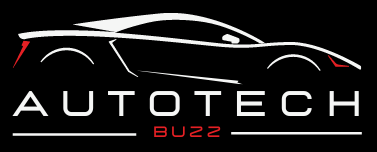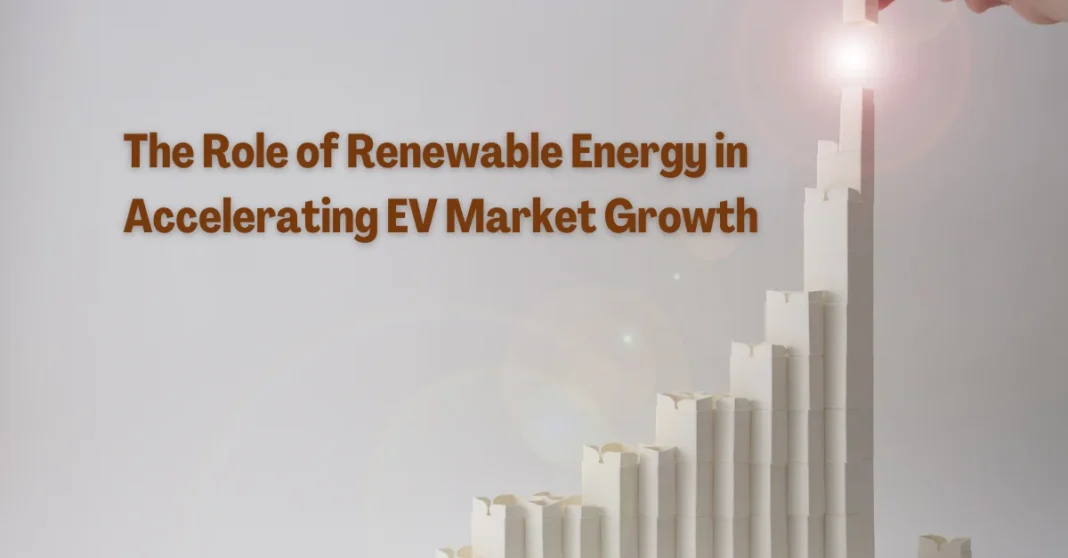As the world moves toward sustainability, the convergence of electric vehicles (EVs) and renewable energy is proving to be a game-changer in the global transition to cleaner transportation. The role of renewable energy in accelerating EV market growth is vital, as it not only supports the clean driving revolution but also helps reduce greenhouse gas emissions and reliance on fossil fuels. Here’s how renewable energy is helping shape the future of electric vehicles:
1. Charging EVs with Clean Energy
One of the most significant ways renewable energy is accelerating EV market growth is by powering EVs through clean energy sources. Traditionally, electric vehicles rely on the electricity grid, which may be sourced from fossil fuels. However, when renewable energy sources like solar, wind, and hydroelectric power are used to charge EVs, it creates a fully sustainable ecosystem, dramatically reducing the carbon footprint of each vehicle.
The rise of solar-powered charging stations is one example of how renewable energy is integrating directly with EV infrastructure. By combining solar panels with EV charging stations, consumers can charge their vehicles entirely using green energy, making electric vehicles even more environmentally friendly.
2. Renewable Energy Reduces the Carbon Footprint
For the EV market to fully contribute to reducing climate change, the energy used to power EVs must also come from clean, renewable sources. Renewable energy sources, such as solar and wind, generate zero emissions, meaning that they significantly lower the overall carbon footprint of an EV throughout its lifecycle.
When paired with an EV charging network, renewable energy ensures that the entire transportation chain—from production to charging—is as sustainable as possible. This alignment between the renewable energy sector and EVs creates a clear pathway for governments and businesses aiming for net-zero emissions.
3. Incentivizing Green Energy Adoption
As the demand for electric vehicles grows, the need for clean energy infrastructure also increases. Governments and private companies are incentivizing both EV adoption and renewable energy integration. Policies such as subsidies, tax credits, and rebates for both EVs and renewable energy installations (like solar panels or wind turbines) make it easier for consumers and businesses to adopt green energy solutions.
For example, some regions are offering incentives for homeowners and businesses to install solar-powered charging stations, encouraging a direct link between renewable energy and the expansion of EV infrastructure.
4. Grid Stability with Renewable Energy
While renewable energy is essential for reducing the carbon footprint of the EV market, one challenge is the intermittency of energy sources like wind and solar. To maintain grid reliability, energy storage solutions (such as large-scale batteries) are essential. These solutions can store excess renewable energy generated during peak production periods and release it when demand spikes, such as during high EV charging times.
As storage technologies improve, the efficiency of renewable energy systems will increase, making them a more reliable source of energy for EV charging. This growth in energy storage capacity also contributes to the expansion of the EV market by ensuring that renewable energy can meet the increasing demand for electric vehicle charging.
5. Decentralized Energy Production and EV Integration
The integration of EVs with decentralized energy systems, such as solar rooftop panels and local wind farms, is a growing trend. This enables individuals, businesses, and even entire communities to produce their own clean energy and use it to power their electric vehicles. As more people take advantage of renewable energy for home charging, the demand for EVs continues to rise.
The concept of Vehicle-to-Grid (V2G) technology is another exciting development. V2G allows electric vehicles to feed energy back into the grid, creating a two-way exchange that benefits both the vehicle owner and the power grid. This could help manage peak loads on the grid, contributing to energy efficiency and further boosting the appeal of EV adoption.
6. Renewable Energy Driving Economic Growth
As renewable energy and electric vehicles become more integrated, they are creating new markets and business opportunities. In addition to boosting the growth of renewable energy jobs, such as those in solar panel manufacturing or wind turbine installation, the electric vehicle industry is fostering new business models like electric vehicle charging networks, battery production, and sustainable vehicle manufacturing.
This economic growth is not only encouraging more investment in green energy but is also making renewable-powered electric vehicles more affordable and accessible to consumers. As production scales up and technologies mature, the costs of renewable energy and EVs are expected to fall, making them increasingly mainstream.
7. Building the Future of Sustainable Transportation
The role of renewable energy in accelerating EV market growth is a key component in the transition to a sustainable transportation ecosystem. By investing in renewable energy infrastructure and expanding EV charging networks powered by green energy, governments, businesses, and consumers can help create a cleaner, more sustainable world.
The EV market, fueled by renewable energy, represents the future of transportation—a future where electric vehicles are not just an alternative to fossil-fueled cars, but a cornerstone of a cleaner, more sustainable economy. In 2025 and beyond, this synergy between renewable energy and electric vehicles will be crucial in helping the world meet global climate targets.
Conclusion
Renewable energy is not just the fuel for the future of electric vehicles; it’s an essential driver of the industry’s growth. By integrating renewable energy sources like solar and wind power into EV charging infrastructure and production, we can accelerate the transition to a cleaner, more sustainable future. As both industries continue to evolve, the synergy between EVs and renewable energy will play a pivotal role in reshaping the way we travel, reduce emissions, and live in harmony with the planet.
#RenewableEnergy #EVMarketGrowth #ElectricVehicles #GreenEnergy #SustainableTransportation #CleanEnergy #SolarPower #WindEnergy #ElectricVehicleRevolution #EVCharging

